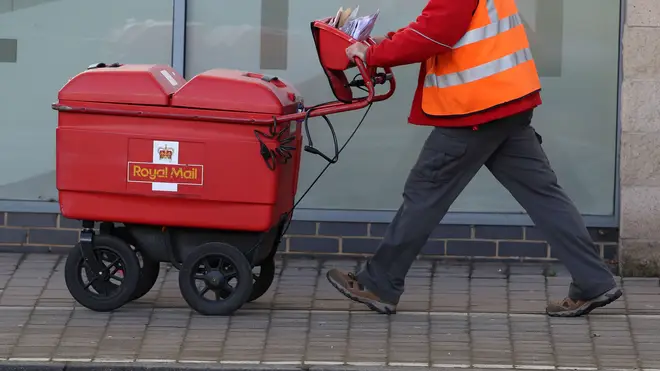
Nick Abbot 10pm - 1am
19 May 2022, 09:54

The group reported an 8% rise in underlying operating profits to £758 million for the year to the end of March.
Royal Mail has cautioned over possible further price hikes and revealed plans to ramp up cost cutting as it looks to tackle soaring inflation pressures.
The group said it was facing “significant headwinds” from higher wage demands, surging energy and fuel costs.
It said it will need to go further with cost savings, increasing its target to more than £350 million from around £290 million previously.
Royal Mail insisted it was not planning further job losses to meet the new target, having in January already announced about 700 management jobs would go as part of already announced cost-cutting aims.
It said it was also keeping its prices under constant review to combat rising inflation, which comes after it recently hiked the cost of posting letters by an average of around 7%, and parcel prices by an average of about 4%, on top of a fuel surcharge.
The firm reported an 8% rise in underlying operating profits to £758 million for the year to the end of March.
On a reported basis, pre-tax profits fell 8.8% to £662 million.
Royal Mail said it hoped to meet earnings expectations for its UK business over the year ahead, if it can agree a pay deal with its union that is “broadly” in line with its current offer.
Chief executive Simon Thompson told the PA news agency the group remains in “intense discussions” with the Communication Workers Union (CWU) as they look to agree on pay.
Royal Mail cautioned that it expects revenues in its core UK postal arm to fall over the year ahead, with a significant drop in Covid testing kits and also a drop in parcel deliveries as consumers rein in spending.
The shift back to high street shopping following the end of pandemic restrictions will also impact parcel deliveries and it said there has been a weakening of parcel business growth since the final quarter of its last financial year.
Mr Thompson said the firm was already seeing “some impact” of the cost-of-living crisis on parcel demand and a “fall away from peaks” during lockdowns when shops were shut.
But its figures showed UK full-year parcel deliveries still rose 31% against levels seen before the pandemic struck, while letter mailings were 18% lower on a two-year comparison.
Year-on-year, parcels fell 7% on the lockdown boosted previous year, while letters rose 3% thanks to the lifting of restrictions.
The group said it was at a “crossroads” in its overhaul as parcel delivery becomes ever more important.
Mr Thompson said: “As we emerge from the pandemic, the need to accelerate the transformation of our business, particularly in delivery, has become more urgent.
“Our future is as a parcels business, so we need to adapt old ways of working designed for letters and do it much more quickly to a world increasingly dominated by parcels.”
He added: “Our focus now is to work at pace with our people and our trade unions to reinvent this British icon for the next generations.
“We have no time to waste.”